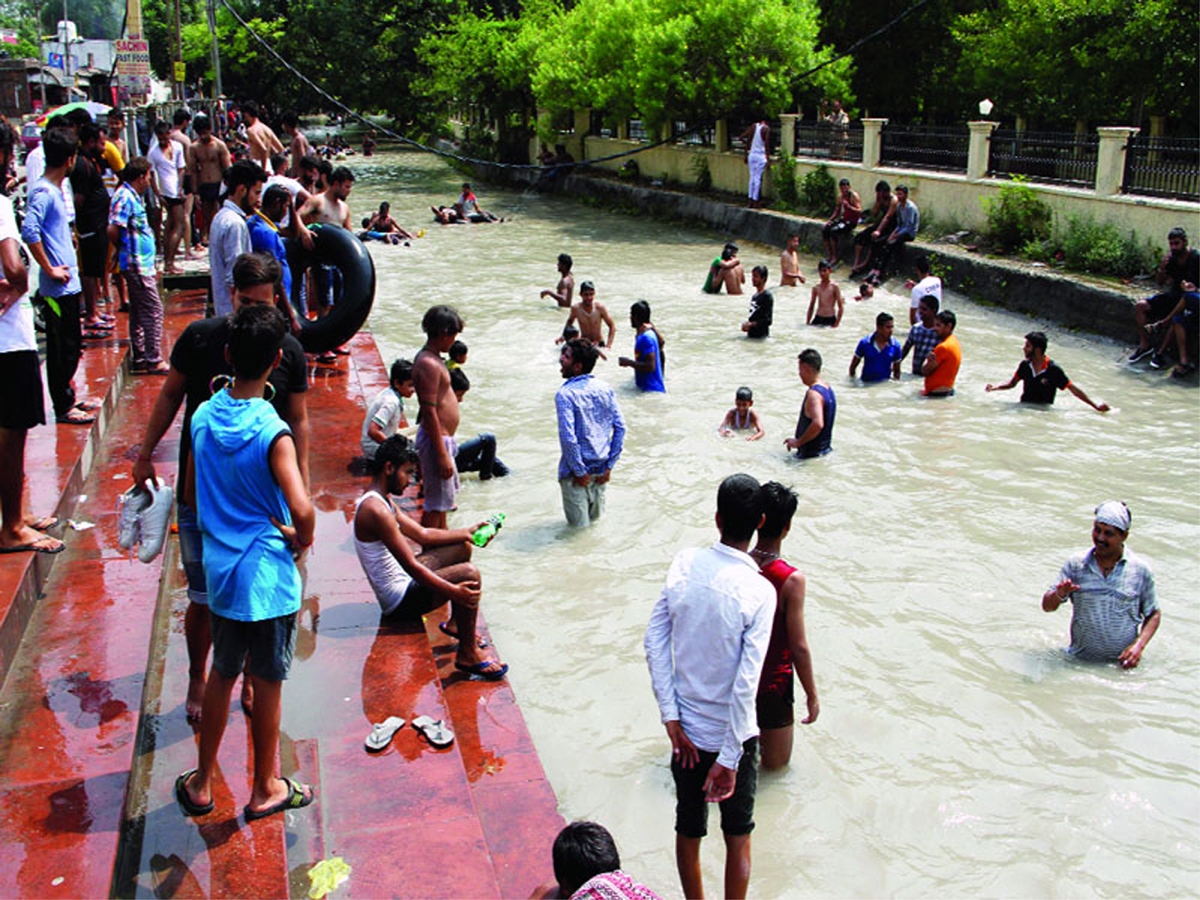Dr Farooq Ahmad Peer
Jammu – a land of brutal summers where the summer steps on to the fore front with its first visuals in the month of March slowly and steadily creeps into the main frame in the month of April and then finally establishes its firm grip in the month of May. This year, mercury in the winter capital has stepped on the gas as expected in the month of May. Earlier, in the month of April the mercury fluctuated and played cat and mouse around 30 to 34 degrees. During May the temperature started to rise up and over and finally the extreme hot days of the season started to ensnare people with their might.
The Pandemic of Coronovirus has affected day to day life and is slowing down the global economy. This pandemic has affected thousands of peoples, who are either sick or are being killed due to the spread of this disease. The most common symptoms of this viral infection are fever, cold, cough, bone pain and breathing problems, and ultimately leading to pneumonia. This, being a new viral disease affecting humans for the first time, vaccines are not yet available. Thus, the emphasis is on taking extensive precautions such as extensive hygiene protocol (e.g., regularly washing of hands and togetherness, social distancing, and wearing of masks, and so on. This virus is spreading rapidly. The most common symptoms of this viral infection are fever, cold, cough, bone pain and breathing problems, and ultimately leading to pneumonia. This, being a new viral disease affecting humans for the first time, vaccines are not yet available.
The Pandemic has already disturbed and aghasted the life of people and simultaneously the month of June is proving terrible for Jammuties as the sweltering heat has risen unexpectedly. The brutal sun has created a havoc of problems for the Jammu people. Heat strokes, profuse sweating, dizziness, laziness have all bothered the people of Jammu to the uppermost extent. In certain cases people are seen, resting under trees, trying to find shade under the structures, deliberately entering a centrally air conditioned places. Usually during heat, women, men and children would inculcate poles apart trends to beat the heat but the fear of Pandemic has discouraged everybody to take risk. Children these days mostly would hover around the canal road where the local nehr flows. A moderately wide and middling deep stream bounded by concrete, the local stream has mucky deep brown coloured water. Children almost completely naked would jump into the stream during the mid day, when the mercury soars above normal temperature, splash the water and remain in the water just like hippos do when the temperature is extreme. They would jump from moderate heights in their attempt to create ripples and drain off the heat from their bodies.
The Loo- i.e. hot winds which have created havoc and a dozen of problems. The Pandemic has become the greatest trouble maker to the people in the hard times of heat. The loo thumps the people like a hot slap in the face, and the itching can be felt for a majority of the time. Elder men, mostly construction and site workers, tie their head with a wet clothe, but the intensity of the heat sucks out almost every molecule of water from the clothe thereby giving them an ephemeral relief. Women, like the good old obsolete tried and tested way, cover their head with the traditional duppatta in order to save themselves from the ferocity of the Jammu sun. Village women, cover their newly born children with their silky duppattas. Heat doesn’t mean anything to them, but from their looks it can be ascertained and deduced that they care for their babies and they want to hoard their babies from the roasting solar source. Local young girls driving their scooty peps cover their heads with cotton mufflers, their arms wrapped in cotton sleeves and their eyes hidden behind the black shades. Nowadays people normally wear masks due to Pandemic which tightens their breathing and hell of heat has made life miserable. The Pandemic has restricted people from hovering around the Banta (the traditional lemon soda electrolyte) stalls and their owners would serve ice cold Banta with a smile, shikanji (another traditional icy drink) which is absent due to Coronovirus. Local stalls also would sell icy cold water melons with a pinch of lemon. Local ice cream shops would make brisk sales, due to the number of local people who continuously flock the arenas. Water coolers, installed at every nook and corner would find a beeline of water thirsty people. The local electrolyte tastes like sacred water, a shady place like heaven and the disappearance of sun surely resembles rapture. In short Jammu has transformed into a burning well.
Nevertheless, people have lived with this heat for years as Kashmiris live with terrible cold during winter and until the world ends, the local population- a carpenter, a painter, a small scale vendor, will have to live and deal with it. Over the years young and old have found ways to encounter it and fight the tough battle. This battle will continue for the years to continue; it will never stop. No doubt people blame phenomenon’s like the global warming, or increase in air conditioners which release CFC’s into the atmosphere as possible reasons for this heat wave, but the actuality remains that heat is a part of Jammuites and they would have to deal with it. Water soaked duppattas and clothes, swimming in local streams, covering forearms could be the possible ways to encounter the ferocious and unforgiving sun, but more than that, there remains a will to survive and fight through and conquer the heat.
Trending Now
E-Paper


